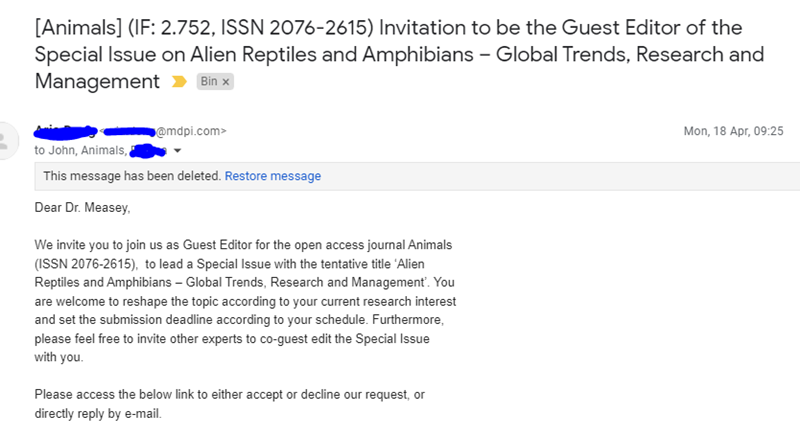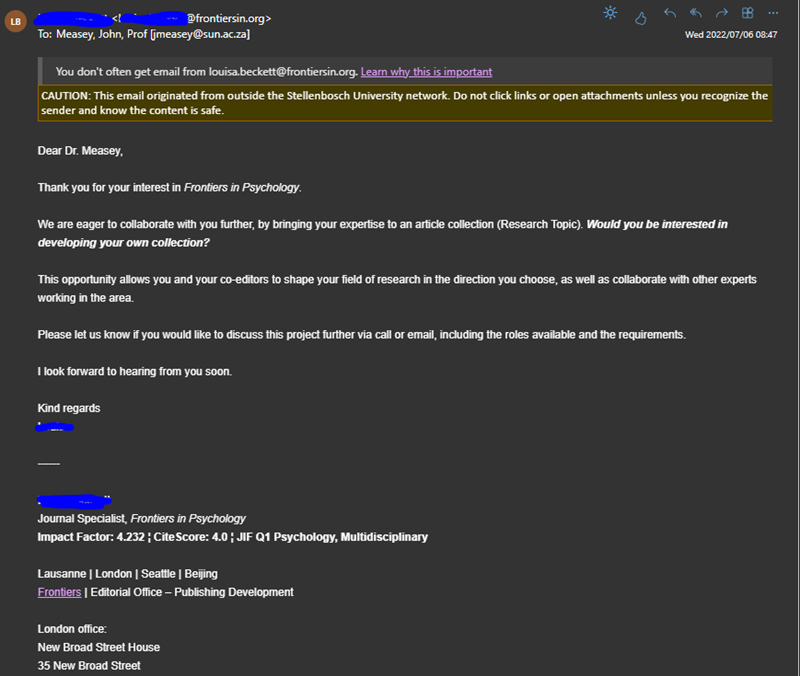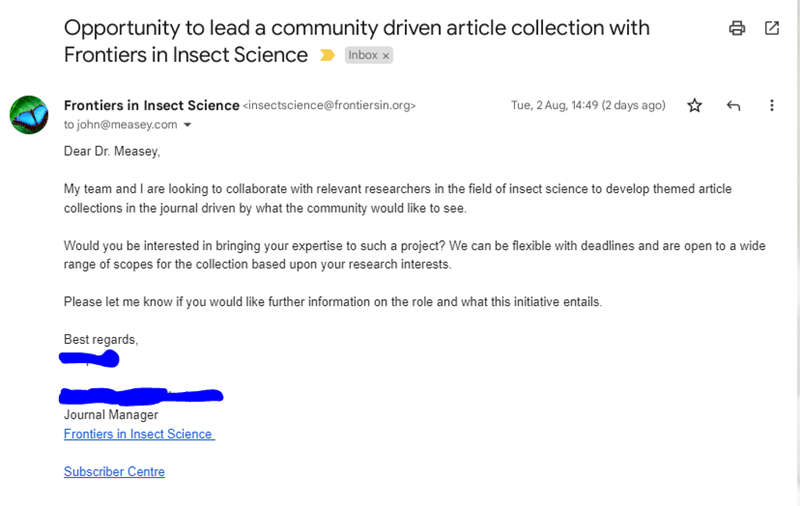Should you be a Special Issue editor for parasitic publishers?
Have you received an invitation from a journal published by Frontiers In or MDPI asking you to be an editor for aspecial issue? I know that I have received many such invitations over the past year or so, either to edit special issues or contribute papers to them. Why are these journals pushing so hard to have me (or you) edit for them? Although I don’t work at either publishing house, here are some of the issues that you should consider before responding to Frontiers or MDPI positively to their request:
- These journals are exclusivelyGold Open Access. This means that anyone publishing in these journals needs to pay a fee or Article Processing Charge (APC) in order to publish there. The APCs are very high (USD 1000 to 3000 see here and here), considering that the actual costs are less than USD 100 per paper for the publisher. They are making massive profits even if you pay half.
- When you agree to be an editor, you will effectively be an agent soliciting customers for the publisher. As an editor of a special issue, the onus to recruit contributing authors will be on you, and each author will (eventually) pay the publisher for their contribution. Be aware that the publishers will be making a good profit from your network and contacts, moreover they won’t need to pay you anything for this privilege (they may give you a discounted APC - but see below).
- Some potential authors will be barred from contributing due to the massive APCs. Because many scientists from middle-income countries (and many more from high income countries) have no budget to pay for Open Access, they will not be able to contribute to your special issue. The publisher is very likely to offer a discount to contributors (they start at 10% and go up to 50% but it’s all profit in their purse), but if you have people who genuinely want to contribute but have no money, this will be a barrier to their participation. This means that your potential contributors have been effectively reduced by more than half of the planet.
When you consider the issues above, you should recognise that the massive privilege of being asked to edit a special issue, is now looking like you’re being exploited by a publisher to use your network to net them some cash. 
So does this mean that these journals are predatory?
The line between what can be considered a predatory publisher, and what not, is becoming increasingly blurred (seehere). The reason these publishers are no longer considered predatory (in the case of MDPI at least) is that their contributions are sent out to review. As a guest editor of course, this will be your job! So perhaps instead of predatory, perhaps we should use the term 'parasitic' for these publishers.
Special Issues are valuable to your career
Of course, it’s up to you to decide whether or not you want to be the editor of a special issue. If all of your network are from wealthy institutions where APCs are not a problem, and you’ll be regarded in a positive light when putting together one such special issue, then go ahead. If you have any inkling that some of your network won’t be able to pay, then don’t be swayed by reassurances from these publishers that they have discounts. For most authors from middle-income countries, half of the APC is more money than they are taking home each month.
If you are tempted by one of these emails from MDPI or Frontiers then my best suggestion is to approach the editor of aDiamond Open Accessjournal, or failing that a society journal. Pitch your idea for the special issue and ask them whether they would consider doing this in the next 2 years (publishing schedules are longer for these journals). Good special issues take time to plan and curate. Make yours the best it can be and don't end up feeding a parasite.
Whatever your take on an editing role with these publishers, you should ask yourself whether or not you are prepared to work as an agent earning money for a publisher.


